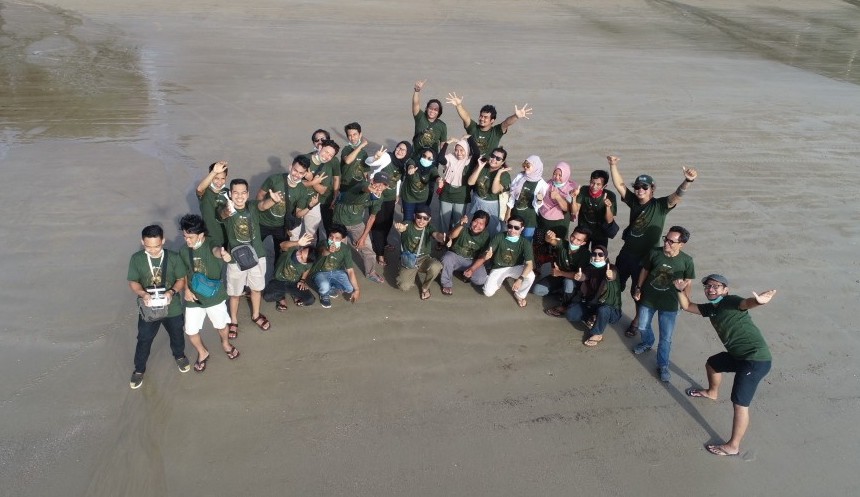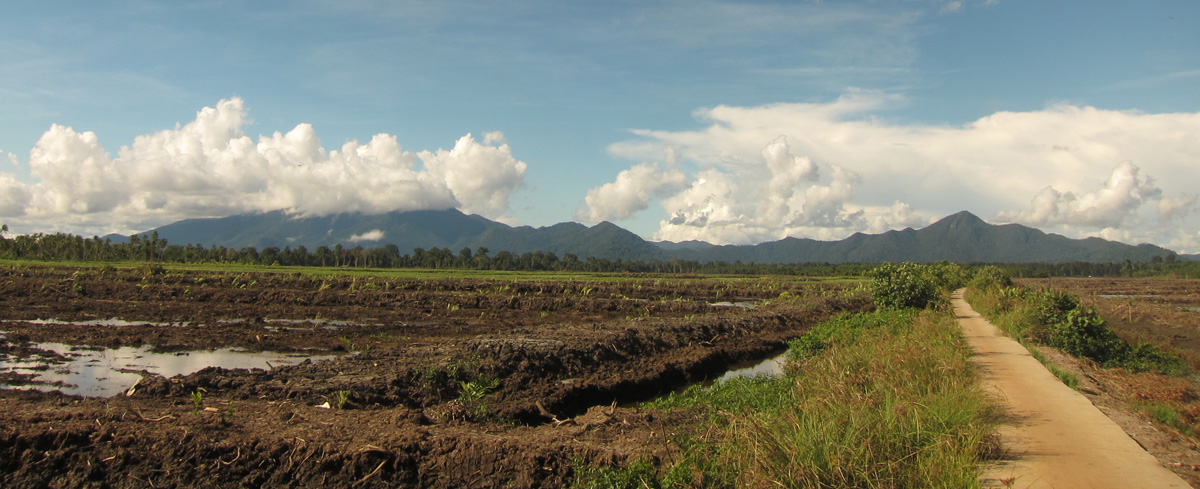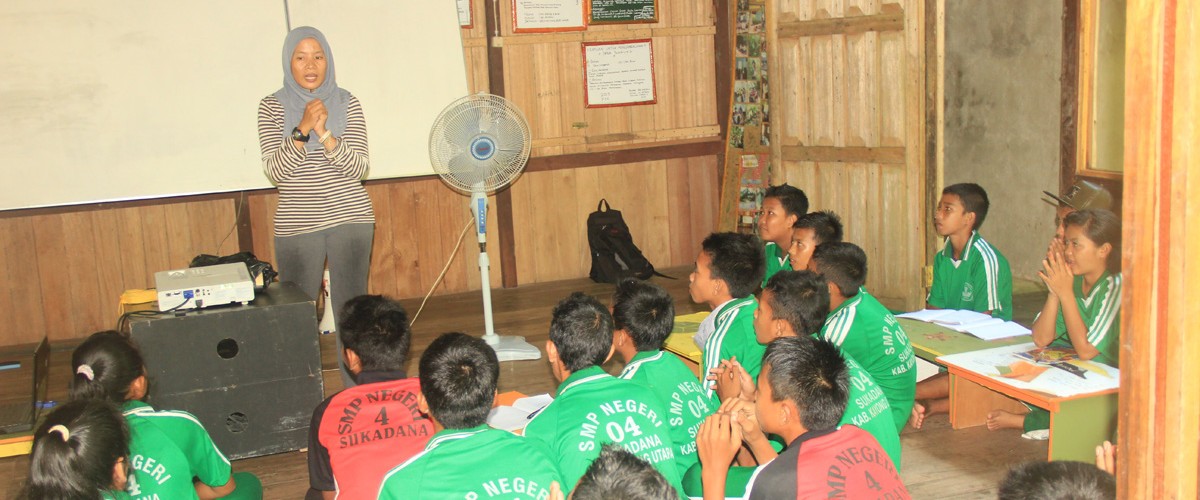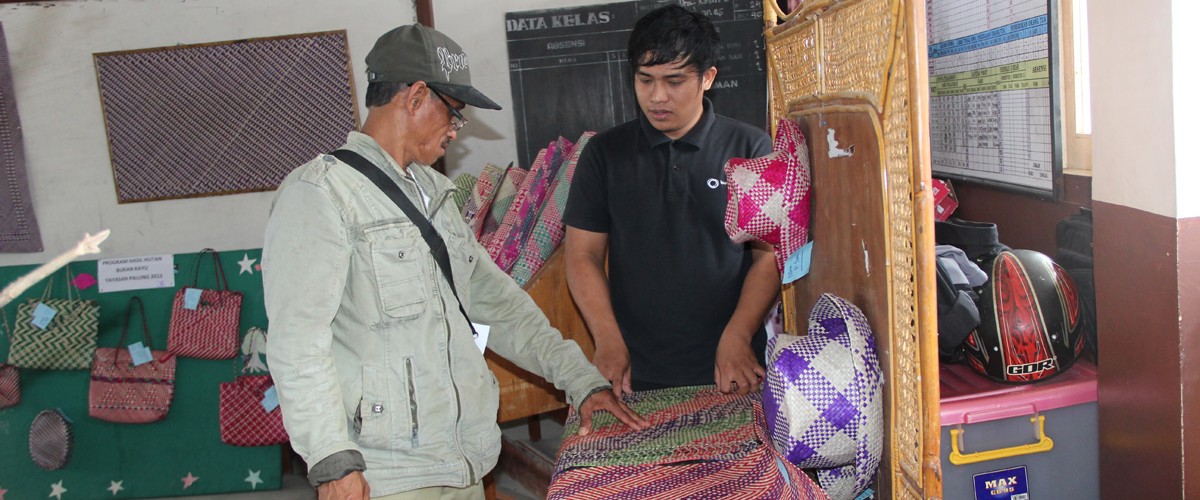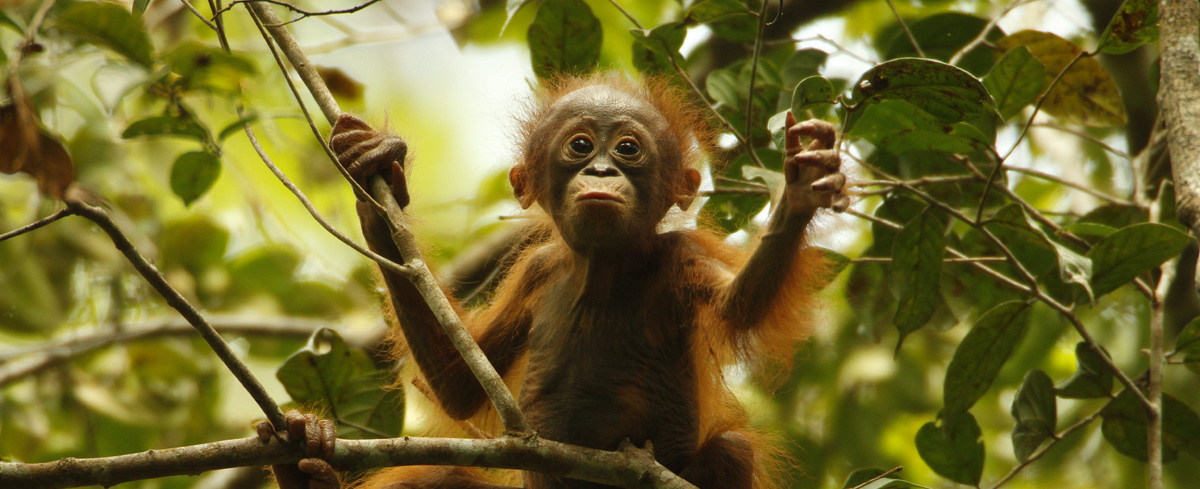By Edi Rahman, Field Director
Each year, GPOCP (known as Yayasan Palung in Indonesian) holds an Annual Meeting. This past month, from January 8th to 10th, we held the 2021 Annual Meeting at Pasir Putih-Sungai, Gantang, Mekar Utama Village, Kendawangan. The meeting was attended by all GPOCP conservation and research staff. During the meeting, we evaluated the activities that were carried out in the previous year, and coordinated and planned activities for the next year.
During the 2020 activity evaluation, our teams shared that many of the activities that had been planned could not be carried out, or were carried out in a limited capacity, due to the COVID-19 pandemic. The Environmental Education program was the most affected by COVID-19, as programming typically occurs directly in schools. In March 2020, all schools were closed and many conducted schooling online. As a result, many of the Environmental Education activities were altered so that they could be carried out virtually.

Next, after evaluations, managers from each program (Environmental Education and Conservation Awareness, Sustainable Livelihoods, Wildlife Crime and Investigations, Customary Forests, and Research) shared their plans for 2021.
During the two-day meeting we also carried out service activities and campaigning activities around the village where the meeting was held. Specifically, we focused our efforts towards tourist locations in Kendawangan District. This area is visited by many people, especially on holidays. We conducted Operasi Semut (‘Ant Operations’ – a term used locally to refer to group activities to clean up nature), cleaning garbage and other plastic waste in the area.

We also worked together on a campaign to install multi-media posters explaining how long it takes for different types of waste to break down. Our goal was to raise awareness among the public, especially the tourists to the Pasir Putih beach, so that visitors will properly dispose of trash in the spaces provided.
It is known that the forests in the Kendawangan subdistrict are also a habitat for a small remaining population of orangutans and other protected species. Our investigations team, which has been working in the area since 2002, has discovered several cases of hunting and trafficking of various animals, including orangutans. There have also been cases of such animals being kept as pets. Thus, we decided to also carry out a campaign to install two billboards containing information about protected animals, such as orangutans, and distribute MIaS, our Indonesian language newsletter, to the visitors we met at the various tourist attractions.


I consider this Annual Meeting to have been a great success, as we were able to create plans with measurable impact, and will output activities based on our shared goal of conserving orangutans and their habitat. Through this meeting, we also continue to build a strong connection between all the GPOCP staff from the different programs. This connection is essential for us to achieve both our vision and mission.

